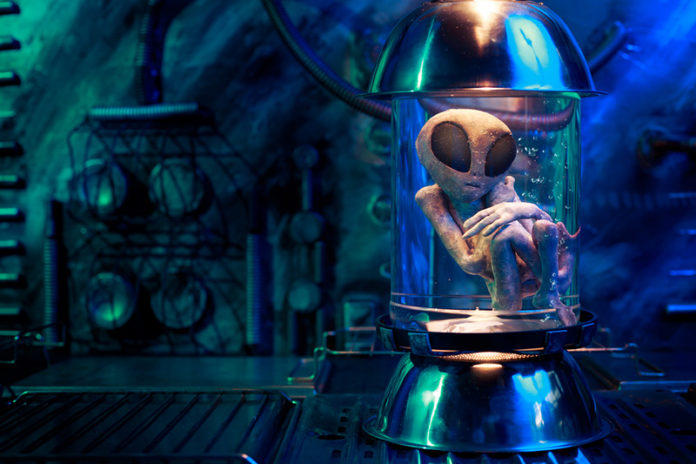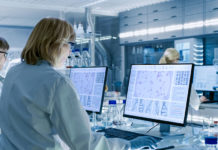Between 1935 and 1945 some 19,000 children were born as the beginnings of Hitler’s master race. Good SS boys were encouraged to “hook up” with blue eyed blond haired Nordic girls. The children born of such unions were placed in foster care or raised in special orphanages for raising good little Nazi children. If any of the infants were less than “perfect” they were killed or sent to concentration camps.
Fast forward to today. New Science reported, “A team in China has corrected genetic mutations in at least some of the cells in three normal human embryos using the CRISPR genome editing technique.”
CRISPR, or Clustered Regularly Interspaced Short Palindromic Repeats, is a DNA editing procedure that is being used in research as a potential tool for the benefit of humanity. This technology was developed in 2012 by Jennifer Doudna and Emmanuelle Charpentier.
This gene editing technology is currently being employed to research possible application in agriculture, microbiology, disease treatment and biofuel. According to Dr. Dounda, professor of molecular and cell biology and Howard Hughes Medical Institute investigator at UC Berkeley,
“There are many others arenas in which better gene-editing tools can promote global health, specifically by improving crops and sustaining a healthy microbial environment that has been shown to prevent illness, improve crop yields and nurture a balanced ecosystem. At UC Berkeley we have the expertise in plant science and microbiology research to make a real contribution by designing higher-yield, more pest-resistant crops that a large proportion of the world’s population depend on, and fostering the microbial populations critical to human health and the health of the planet.”
The potential for CRISPR to benefit humanity is promising. However, as with any science, there are risks. What are the possible unintended consequences?
Before CRISPR, Brazilian scientists desired a more productive honeybee. So, in 1956 they imported African honeybees to South America to breed this new strain. Some of the bees escaped and bred with different honeybees. Now the world has “killer bees.” An unintended consequence. This reminds one of Dr. Ian Malcolm’s famous line from Jurassic Park, “I’m simply saying that life, uh… finds a way.”
What are the potential negative consequences of CRISPR technology? No one really knows at this point. There are warnings of “off-target effects.” Off-target effects are unintended changes in the genome that may occur as the result of CRISPR. Sharon Begley reported, “Although each CRISPR has zero to a dozen or so ‘known’ off-target sites (where known means predicted by those web-based algorithms), . . . there can be as many as 150 ‘novel’ off-target sites, meaning scientists had no idea those errors were possible.”
Presently scientists have no idea of the possible negative consequences that may be caused by CRISPR. There can be up to 150 unknown side effects. If they are unknown why isn’t it possible for there to be more than 150?
In the future, if CRISPR technology is perfected (as if that were possible in an imperfect world), its potential for good is tremendous. That is, if we ignore the fact that we’re playing god with human embryos. Just imagine a world without cancer and birth defects. A world filled with happy, healthy people—a “master race” if you will.
What if a government decides to weaponize these CRISPR perfect people? Let us return to the opening paragraph. Imagine for a moment that CRISPR technology had been available to Nazi Germany. It doesn’t seem a stretch to assume that Hitler would have employed this technology in attempting to create his master race. You know, a Captain America type soldier. On the other hand, what if one of the “off-target effects” creates a Resident Evil type monster? This is the stuff science fiction and horror movies are made of.
Ignoring the hyperbole of the above paragraph (Or is it?), science without ethics is frightening. Dr. Dounda is aware of this. “By the spring of 2014, I was regularly lying awake at night wondering whether I could justifiably stay out of an ethical storm that was brewing around a technology I had helped to create.”
What is meant for the good of humanity, in the wrong hands, is often twisted and used for nefarious purposes. There is no end to the evil intent of some. “The LORD saw that the wickedness of man was great in the earth, and that every intention of the thoughts of his heart was only evil continually” (Gen 6:5 ESV).
Does humanity have the moral ability to ethically use our scientific discoveries? And if you think we are morally capable, what is the standard? Does the United States determine what’s right and wrong? What about China or Russia? Or should the United Nations should be the final arbiter of morality? Those who believe in transcendent truth, shudder at the idea of mutable humans defining morality.
The answer to the question of moral ability will most likely depend on an individual’s worldview. For those of us who believe in the God of the Bible, the answer is a resounding NO!






























